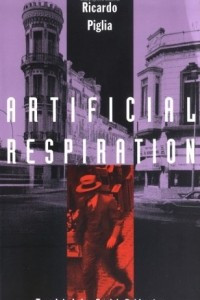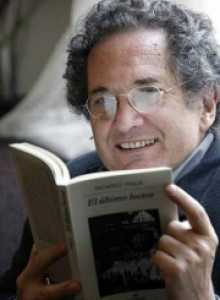Описание книги
Acclaimed as one of the most important Latin American novels in recent decades, "Artificial Respiration" is a stunning introduction for English readers to the fiction of Ricardo Piglia. Published in Argentina in 1981, it was written at a time when thousands of Argentine citizens 'disappeared' during the government's attempt to create an authoritarian state. In part a reflection on one of the most repressive and tragic times in Argentine history, this is one of those rare works of ...
Acclaimed as one of the most important Latin American novels in recent decades, "Artificial Respiration" is a stunning introduction for English readers to the fiction of Ricardo Piglia. Published in Argentina in 1981, it was written at a time when thousands of Argentine citizens 'disappeared' during the government's attempt to create an authoritarian state. In part a reflection on one of the most repressive and tragic times in Argentine history, this is one of those rare works of fiction in which multiple philosophical, political, and narrative dimensions are all powerfully and equally matched. As a prize winning detective novel, "Artificial Respiration" reaches through many levels of mystery to explore the forces that have been at play in Argentina throughout its violent history. The narrator, a writer named Renzi, begins to look for an uncle who has vanished, a man he knows only through a web of contradictory family stories and an exchange of letters. Through these letters he learns about his uncle's research into the life of Enrique Ossario, secretary to the 19th-century Argentine dictator Rosas and spy for the dictator's enemy. As Renzi's search leads further into his uncle's work and to conversations with his literary and chess-playing friends, the reader is led by Piglia to consider the nature of Argentine identity, its literature and history, and its relation, for example, to Europe, exile, and democracy. Finally, and made most vividly appreciable by the retelling of a story in which Kafka meets Hitler, it is the encounter between literature and history that is explored. A richly textured, intricately crafted, and startling mixture of storytelling, inquiry, and speculation, "Artificial Respiration" has established its author among the leading representatives of contemporary Latin American letters. Ricardo Piglia currently lives in Argentina and is the author of three novels and a collection of short stories, for which he won the Casa de las Americas Prize. "Artificial Respiration" is his first book in English. His other books have been translated into Portuguese, French, Italian, and German. Daniel Balderston is Professor and Chair of the Department of Spanish and Portuguese at Tulane University and author of "Out of Context: Historical Reference and the Representation of Reality in Borges", also published by Duke University Press. Книга «Artificial Respiration» автора Рикардо Пилья оценена посетителями КнигоГид, и её читательский рейтинг составил 8.20 из 10.
Для бесплатного просмотра предоставляются: аннотация, публикация, отзывы, а также файлы для скачивания.
- Просмотров: 124
- Рецензий: 0
- Переводчики: не указаны
- Серия: не указана
- ISBN (EAN): 978-0822314141
- Языки: Английский
- Возрастное ограничение: не указано
- Год написания: 1994







Рецензии на книгу
Написано 0 рецензий